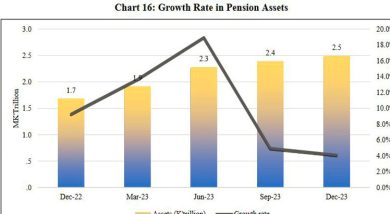Postal services: Past and present

The highlight of the World Posts Day in Malawi on Wednesday is the unveiling of Mtengatenga Postal Museum recently rehabilitated by the Malawi Communications Regulatory Authority (Macra). However, the preserved risks and triumphs are nothing without spurring the sector to move with time.
The postal service facilitates communication locally and with the rest of the world. For years, it has been moving a diversity of essential goods, including medical supplies, school materials, trade merchandise, relief items and diplomatic mails.
But prevailing sights at Blantyre Post Office, the headquarters of Malawi Postal Corporation MPC), confirm declining volumes of letters in a flash.
The number of people dropping in to post letters is dipping since internet and mobile phones took over, confesses one of the postmen behind the counter.
Some are people buying stamps, like those street vendors sell nearby. Others are sending letters by ordinary mail service. Yet others are clamouring to weigh their letters and parcels before sending them by the fast-mail courier facility. Inside the postal centre, there are clients sending and receiving money via the FastCash money transfer system. Besides, some are spotted buying calling cards for their phones—thanks to a mutual partnership with Malawi Telecommunications Limited (MTL), Airtel and TNM.
In the room next door, the tech-savvy can send their messages and receive replies instantly via internet, and virtual information superhighway which connects them to the worldwide web. The people in the computer room can also print, scan and photocopy their documents.
When we met in the vanishing hustle and bustle, Timothy Fazili, 28, a resident of Mbayani in Blantyre, could not remember when he last posted a letter to his parents in Mangochi, brothers in Lilongwe and friends spread across the country. Maybe 2001 or 2002 when he completed secondary education.
“When it comes to sending messages for my family and friends, I prefer using a phone because it is cheap, robust and guarantees me an instant response. As a matter of fact, I am only here to post an application letter for a job and I think this will go because some institutions stopped demanding handwritten job applications,” says the job-seeker, gripping a Samsung phone with mobile internet facility.
His might be farewell to a friendly letter, which used to convey his heartfelt messages to his beloved like no other, but he will have to do with business letters for a while as government, like a decreasing number of private institutions, is still insistent on communications fashioned by pen and paper.
Graciously, the encounter is a repetitive call to renewed action, like what MPC postmaster general Andrew Kumbatira requires of the postal corporation’s staff. There is need for innovation to recapture business that is disappearing with a culture of letter writing.
“We are running on losses because most people are no longer writing letters with the advent of email, Twitter and Facebook….We need to be creative to win back the lost customers,” Kumbatira told 34 recruits at a training last year.
The admission signals a new challenge to save MPC and the associated postal system which symbolises the fulfilment of the dream consul-general Sir Harry Johnston, supreme authority of British rule in the country, had in 1891 when he appointed Hugh Charlie Marshal into the position Kumbatira occupies today.
According to exhibitions at Mtengatenga Postal Museum on Blantyre-Zomba Road, the appointment of postmaster general Marshal, coming just four days into Johnston’s reign, weaned the country from the Portuguese postal system.
The old arrangement required the country’s mail, bearing Portuguese stamps, to be sent down rivers to Quelimane in Mozambique. Its flaws were many: Delayed mail. Missing dispatches. Even the bulk of stamps got lost only to be found a year later.
At times, British authorities accused their Portuguese counterparts of intercepting diplomatic cables that usually disappeared as hippos overturned canoes down the rivers.
As a breakaway, Marshal brought a workforce of runners, clad in white and red uniform, who would carry mail bags for thousands of bush-paved kilometres across the country to connect the colonial government in Zomba with their headquarters in Britain. This entailed beating numerous odds, including marauding lions and aggressive hippos.
From the start, the early settlers feared postmen would be devoured by bloodthirsty wildlife.
The exhibition at the roadside Mtengatenga—which is situated at Namaka where the runners from Blantyre and colonial capital Zomba used to exchange mail bags—show early steps were small, more about risk-taking and unassailable right to information than speed and efficiency.
“A letter would pass through many hands, like a button in a relay race. The letter would travel by land and water and, if fortunate, would bypass curious hippos and hungry lions,” wrote Kate Moss in The Eye of June-August 2011.
Then, any arriving letter marked stunning defiance of settlers’ worst fears that the runners would be devoured by the bloodthirsty beasts.
In 1903, post master general Gosling noted: “cases have occurred where the mail men have been driven to take refuge in a tree and leave the bags at the foot to be smelled and pawed and discarded as inedible by disappointed beasts of prey and mail delayed on that account.”
Actually, Gosling’s predecessor, Ernest Harry, recounted graphically how two porters carrying mail bags between Mpimbi and Zomba were confronted by several lions.
He wrote: “Deeming discretion to be the better part of valour, they sought safety in high branches of a friendly tree and waited until their lionine majesties condescended to move on to pasture new.”
Now, despite the scare from the beasts of prey and prevailing impact of technology on letter writing, sights of MPC vehicles speeding past the solitary repository, Mtengatenga, testify with certainty that postal services did not die yesterday.
They carry mail, parcels and other valuable consignments across the width and length of the country. Their stopovers constitute a network of 180 post offices and 51 postal agencies, monuments of the tremendous evolution in the postal sector.
It is estimated that by 1900, the runners were covering 10 000 miles in a single month and archived writings show they continued doing so until 1937 when the postal system started using bicycles.
Nowadays, Kumbatira and company are grappling with a drastic drop in volumes of letters and parcels to rural areas—all at a time competition from courier firms is mounting.
Last year, the reigning postmaster asked his staff to ask themselves why Malawians prefer paying its competitors K400 for a mail service that costs K100.
On dwindling mail traffic to rural areas, he said: “As a public postal service provider, we are under obligation to still deliver four letters to Marka in Nsanje even when we only make K400 from the transaction. Because of this, we end up making losses of between K250 million and K300 million annually,” said Kumbatira.
This has left over 100 rural post offices subsisting on profits from nearly 50 urban-based set-ups, he disclosed.
The new challenge comes at a time Macra has licensed 11 courier firms. Like MPC, they all deliver consignments similar to the bags that used to weigh down the daring runners on their weeklong miraculous travels from Chiromo in Nsanje to the seat of the colonial ruler in Zomba.
According to Macra public relations officer Clara Mlonya, licensing levels the playing field and brings sanity to the industry as all operators are subjected to the same rules and regulations.
“Even MPC stands to benefit from the competition as it helps it to improve its service delivery. It should also be noted that MPC has a countrywide network of post offices that will never be matched by any courier company in the near future,” she said.
Locally, the observance of the day on Wednesday will celebrate the refurbishment of Mtengatenga Museum by Macra. The communications regulatory authority counts the museum vital because it exhibits priceless history of postal and telecommunication services.
But behind the trail-blazing footprints preserved at Mtengatenga a consensus is loud and clear that postal service providers cannot afford to stagnate as the ICT sector leaps forward.





